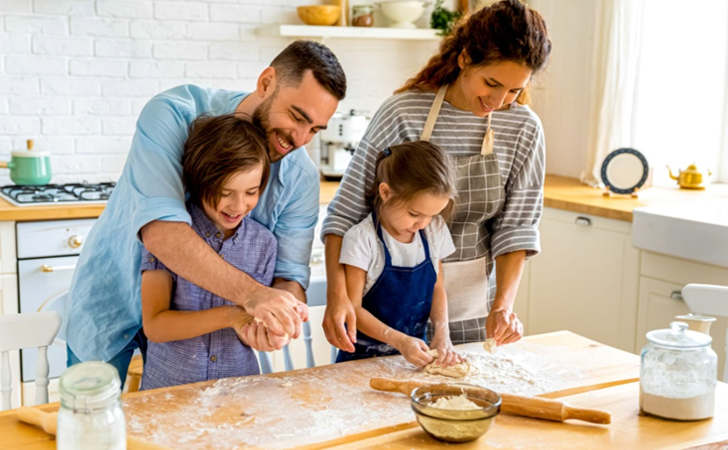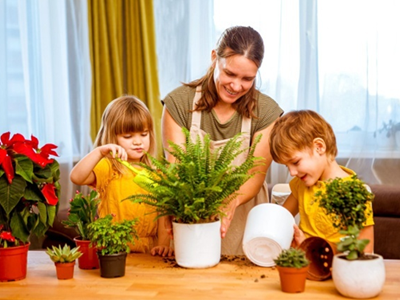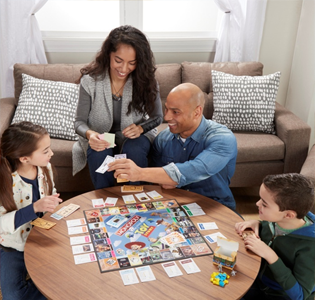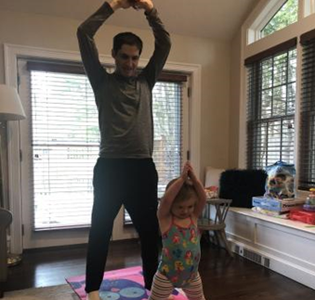Children Under Lockdown

We are in the midst of a global pandemic right now and there is no denying that fear and anxiety about the spread of a disease can be incredibly overwhelming. While the reactions may vary from person to person, it is important to remember that it’s a very different phase for children of all age groups.
They have always heard that they should step put and play and now its completely opposite.
Our lives will continue to change for a while and we may need to rebuild our lives around this new normalcy.
A lockdown is a requirement for people to stay where they are, usually due to specific risks to themselves or to others if they can move freely.
These can be difficult times for all of us as we hear about spread of COVID-19 from all over the world, through television, social media, newspapers, family and friends and other sources. The most common emotion faced by all is Fear. It makes us anxious, panicky and can even possibly make us think, say or do things that we might not consider appropriate under normal circumstances.
Social restrictions and school closures are dealing with feelings of anxiety, with many at risk of lasting psychological distress, including depression. In recent surveys by Save the Children of over 6000 children and parents in the US, Germany, Finland, Spain and the UK, up to 65 per cent of the children struggled with boredom and feelings of isolation.
As the corona virus pandemic spreads, self-isolation or quarantine is one of the key strategies in “flattening the curve” of infection rates. The quarantine has created extra burden for parents/caregivers of person with disability. Here, We have compiled some suggestions to help parents/caregivers of person with disability to make their child engaged during quarantined as knowledgeable and interesting with the available resources.
Lockdown May Cause Behavioral Changes among Children
 Children may exhibit behavioral and emotional changes due to the extended lockdown situation in the wake of the coronavirus pandemic.
Children may exhibit behavioral and emotional changes due to the extended lockdown situation in the wake of the coronavirus pandemic.
Especially toddlers and preschool children may not feel safe because they are in a new and uncertain routine. Within this period, children can unconsciously show some regression in their behavior as a coping skill, returning to a developmental stage.
Adolescents may feel introverted and unhappy as they are somehow separated from their friends and spend more time with the family at home.
“When we look at children, in particular, the areas they will express themselves, the people they will communicate with and the ways of communication are restricted. Numerous options such as going to school, spending time at gardens or parks with friends, going for a walk, hugging, playing games have been firstly restricted for hygiene and then in the form of home quarantine,
This situation is serious enough to reach the points that may negatively affect children’s development processes.
Recommendations for healthy mind of child
 “Preschool children can express their anxiety and fear most easily in games,” Ozcan said. It is important to follow the games that children set up and direct on their own.
“Preschool children can express their anxiety and fear most easily in games,” Ozcan said. It is important to follow the games that children set up and direct on their own.
Parents to play games with their children as it could help families to understand what their children are experiencing and concerning.
“Even the 20-minute game time reserved for them at home will be fruitful. The child will feel valued and reinforce the perception of safe space.”Families with adolescents could prefer board games, charades, and traditional games where all family members can participate.So, spend as much time as you can.
Involve them in day to day activity. Let them do daily chores with you. Putting clothes for washing. Doing the bed. All small activities will make them feel involved. This also makes them more skilled and independent. All these activities give a sense of fulfilment when kids perform.
Talk to kids – how was their day ? About what all they did ? What new they learnt at school ? Play with them too. See what project they are doing ? Maybe you can get involved and help them. This might be the first time you are helping but the idea is to be around them.
“Telephone or online conversations with close friends can be useful in terms of a child’s mental health and social support needs. Try and organize zoom calls with their friends and relatives on occasions. I planned a zoom game party for my kid and it was fun to connect all kids together.
“Instead of giving the child a perception of an unreal world, it is necessary to explain this situation according to his age. Give them required information and not excessive data which they cannot understand or handle. Kids should not be exposed to COVID -19 news continuously.”
The child should have the freedom to ask questions about the pandemic and should know that he will not be deceived. However, when answering the questions, parents should be careful to provide appropriate answers to the child’s age and developmental level”
We should remind children that hygiene, balanced nutrition and social distancing rules are our power against the virus.
“By creating a fast and natural routine of the new situation that emerged during the quarantine, the child should be offered a perception of a safe environment. When planning these routines, it would be more appropriate to construct an order that is sustainable, responding to the needs of the child, making you feel safe.”
Children have emotions and it is healthy to express them, we should not be afraid of them getting bored, crying, or being angry.

Activities suggested for Kids during Lockdown
Following are some interesting activities for kids not just to keep them busy to enhance their skills :
- Puzzle (Route, Word)
- Set up a treasure hunt
- Have an indoor picnic
- Art and crafts
- Five stones
- Snake & ladder
- Rubik’s Cube
- Dot to dot
- Chess
- Carrom board
- Monopoly
- Cludo
- Ludo
- Best from waste activities
- Gardening

Some practical steps are to:
- Encourage talking and sharing of feelings. Start by sharing yours in an honest, age appropriate manner
- Consistently reassure children that there is no such thing as a “silly” question or feeling
- Remember to have “normal” conversations about pets, things to do on the weekend and finishing up homework
- Decrease time spent on social media platforms, especially those with upsetting media coverage
- Have a plan for what to do if someone in your household gets sick with COVID-19 and discuss this plan with your children
- Have a daily schedule, as routine helps create stability and certainty
- Know your work place’s family responsibility COVID-19 policy
So, adopting a healthy lifestyle which includes healthy food, physical exercise and time with family and steps to prevention and hygiene are the key points to be remembered.
Be safe be healthy!
